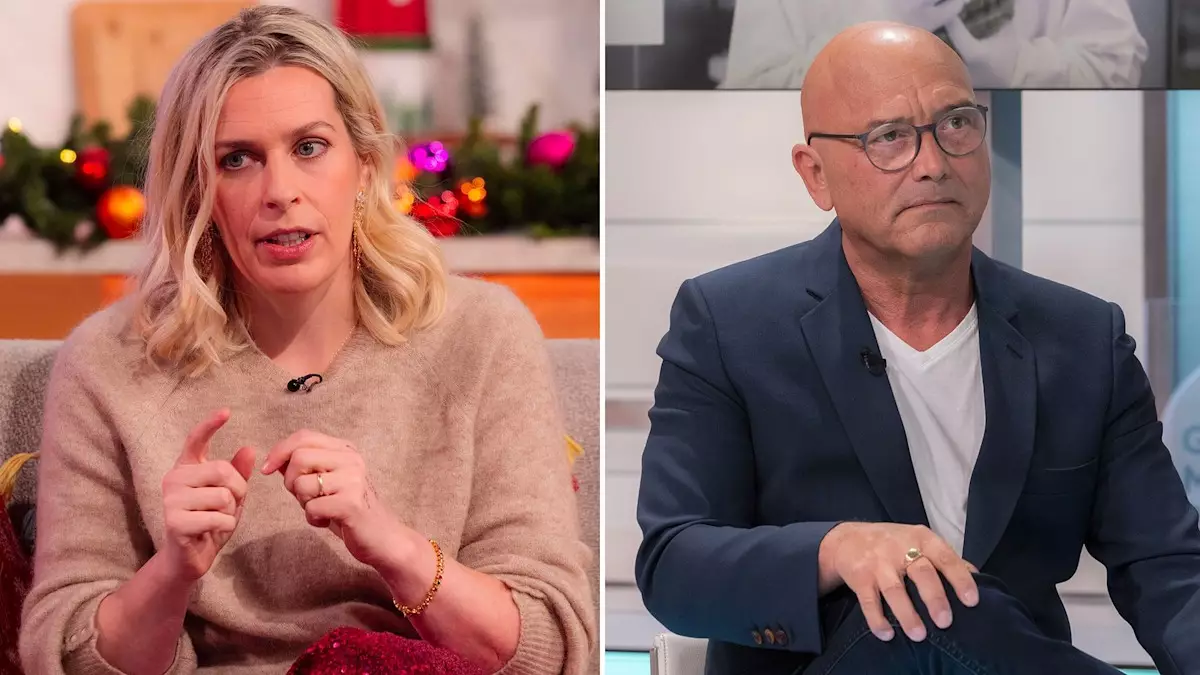During a recent episode of Lorraine, Sara Pascoe seized the opportunity to engage in both wit and candor as she addressed the sensitive and multifaceted issue surrounding her former colleague, Gregg Wallace. The discussion swiftly pivoted from the lighthearted topic of *The Great British Sewing Bee* to a more serious contemplation of allegations against Wallace, who has been embroiled in controversy following accusations of inappropriate behavior spanning nearly two decades across multiple television productions. Sara’s commentary was not only pointed but illustrated a deep awareness of both the societal and personal implications of such allegations.
The episode illuminated the stark realities faced by public figures when serious claims arise. Wallace, under scrutiny from thirteen accusers, prompted a range of reactions from the public and media alike. Notable was Sara’s remark that both she and Lorraine constituted “middle-aged women of a certain class,” a jab that reflected their position relative to the accusations and the broader conversation about gender dynamics in the entertainment industry. What was initially perceived as banter transformed into a serious commentary on the credibility of those who come forward with allegations—an aspect that can often be diminished in the rhetoric of public discourse.
In Wallace’s public response, which many labeled as “misogynistic,” he expressed disbelief that a handful of women could cause such widespread upset, dismissing their claims as overly sensitive. This kind of reaction unfortunately perpetuates the cultural narrative that often undermines women’s experiences, reducing them to mere counts of ‘complaints’ rather than acknowledging the personal courage it takes to come forward.
The intersection of social media and public relations has drastically changed how these conversations unfold. Gregg’s initial video had ignited a firestorm of backlash, compelling him to later publish an apology where he attributed the post to a moment of vulnerability. “I want to apologize for any offense that I caused,” he stated, portraying himself as a victim of an overwhelming emotional state. However, this raised additional questions about accountability: when does personal stress outweigh the need to consider the implications of one’s words in the public arena?
Sara and Lorraine, in their formidable presence, exemplified how women, particularly in entertainment, are now actively shaping the narrative around such issues, embracing their power as advocates for change. Their ability to shift the conversation from scandal to a broader discussion of women’s rights and societal expectations speaks to a cultural shift where voices traditionally marginalized are becoming louder and more assertive.
As the fallout from Gregg Wallace’s controversies continues to evolve, the resilience displayed by figures like Sara Pascoe offers a glimmer of hope. The discussions surrounding these incidents not only spotlight the gravity of the allegations but also highlight the importance of honest dialogue about gender relations. Society is at a juncture where comedy, sincerity, and critical awareness can converge, promoting a richer understanding of the complexities of gender dynamics in today’s media landscape. It is essential for all parties involved to engage in constructive conversations going forward, recognizing the societal ramifications of their actions and remarks.
